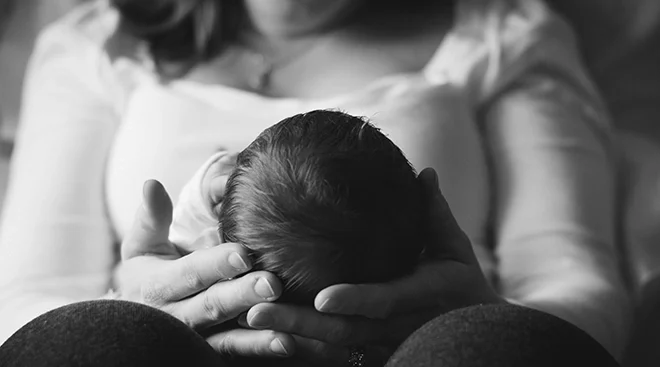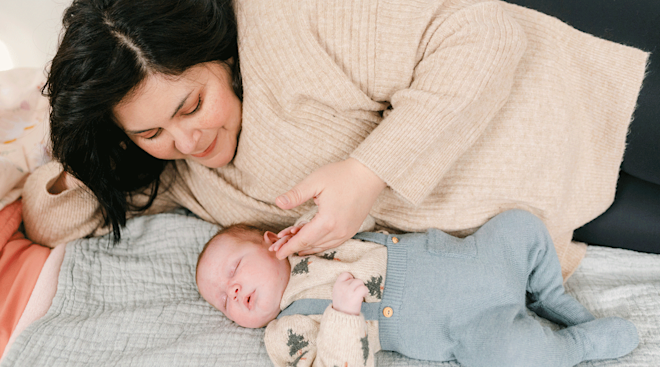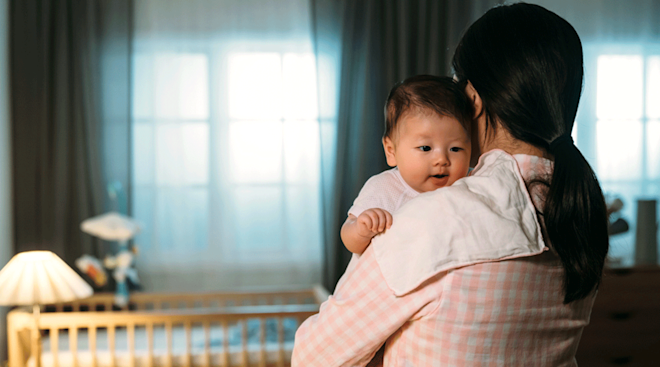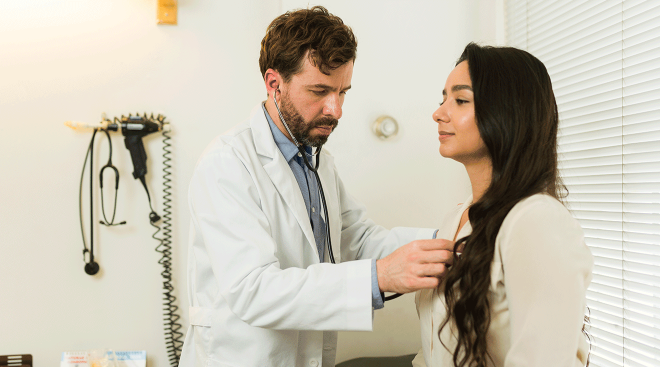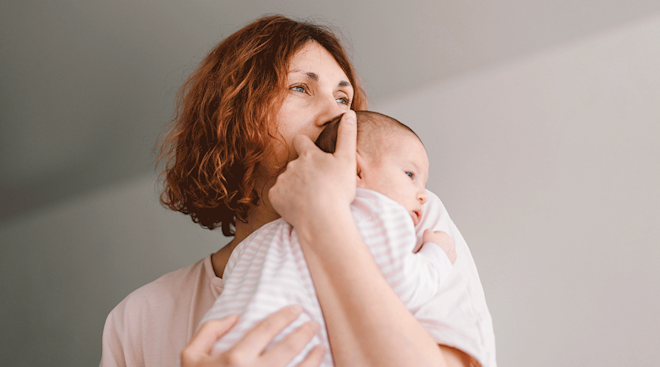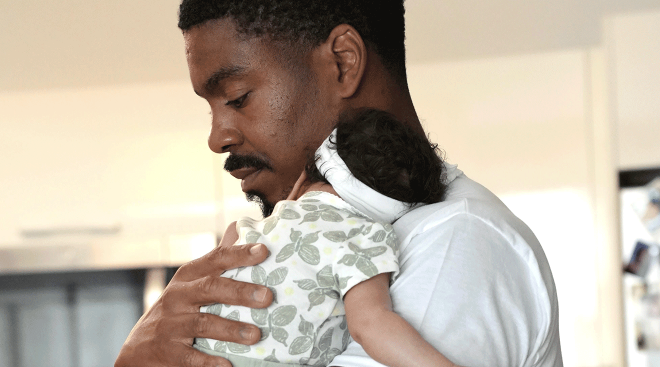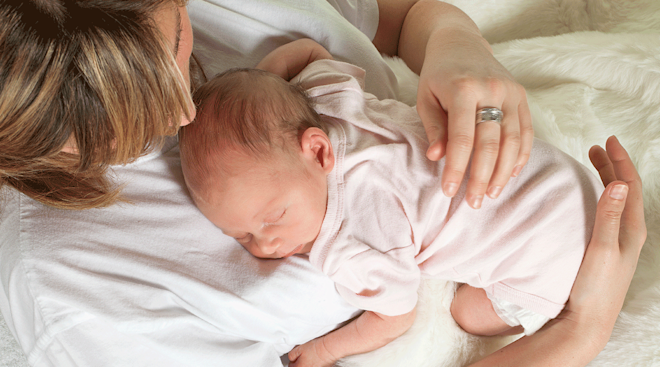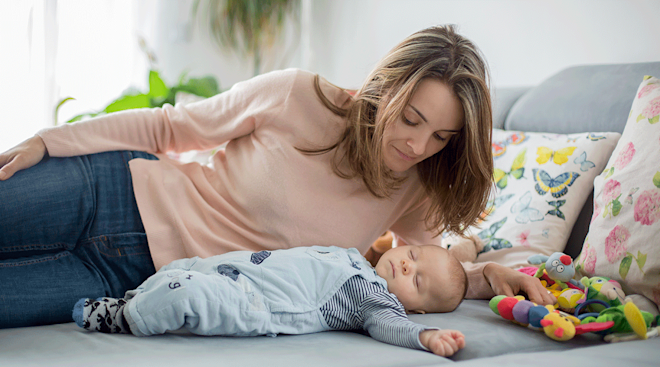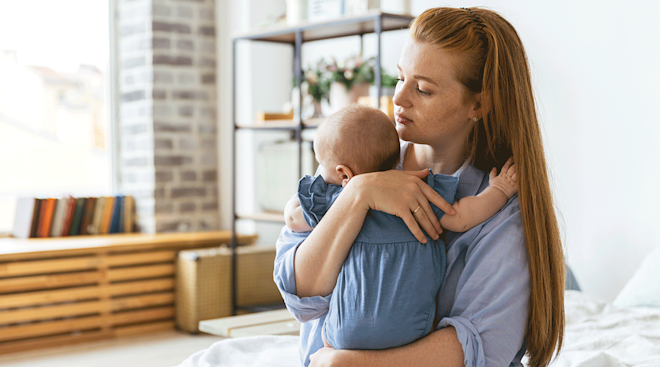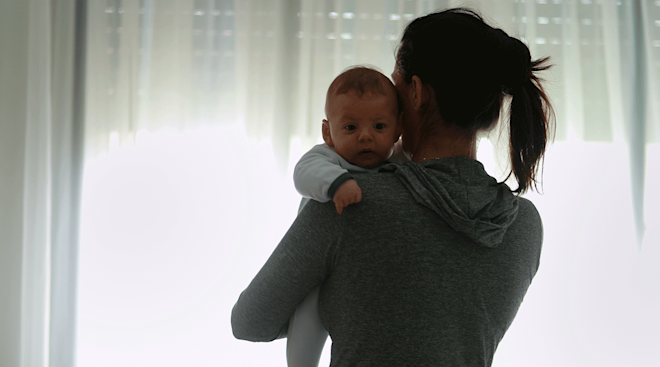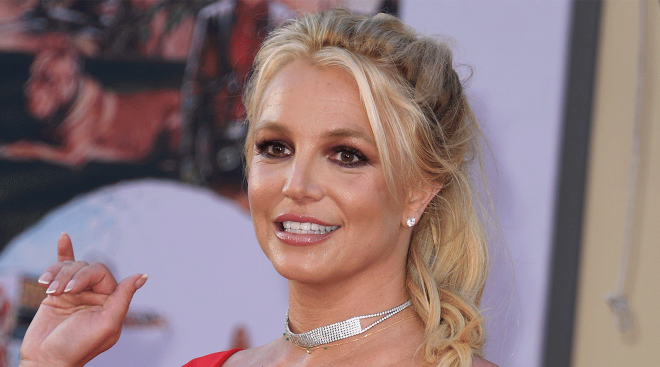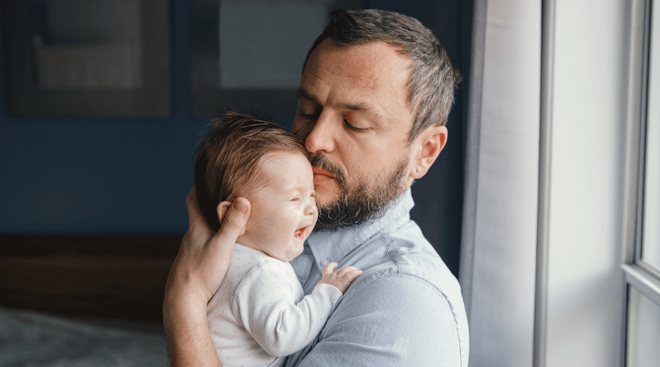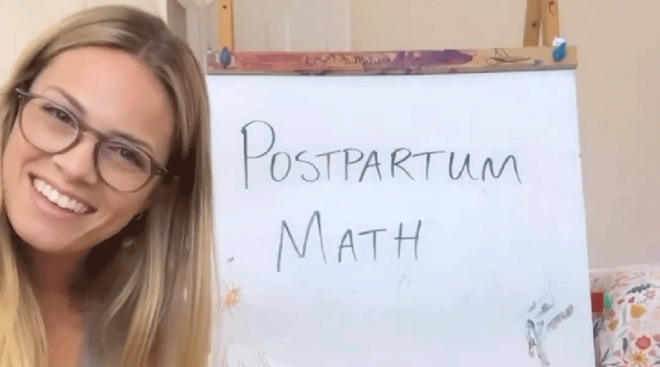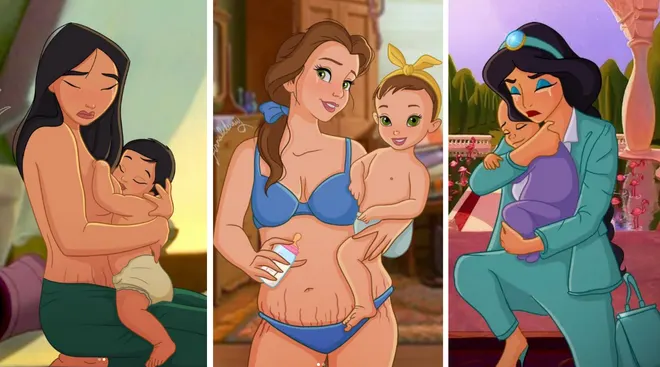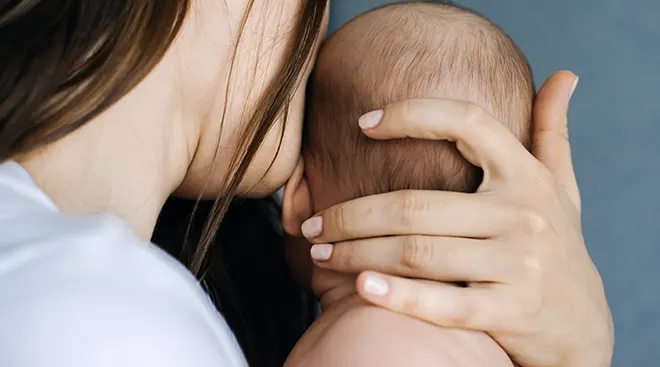New Discovery Could Revolutionize How We Treat Postpartum Depression
Postpartum depression affects up to 20 percent of all moms, and for many who don’t know how to seek treatment or find available treatments ineffective, this can have a big effect on mom and baby. Mothers with postpartum depression can become depressed, anxious, irritable and struggle to bond with baby. At the same time, studies show that children whose mothers have postpartum depression are more likely to have social, emotional and cognitive development issues.
But it doesn’t have to be this way. Researchers at the University of Virginia (UVA) Health System believe they may have identified the biological cause behind postpartum depression—an impairment of the body’s ability to clean up old genetic material and other cellular debris.
“The finding that cells aren’t cleaning out old proteins and cellular debris, called autophagy, occurs before women develop depression symptoms, indicating that it could be part of the disease process,” said the study’s author Jennifer L. Payne, MD, in a press release.“There are several medications that promote autophagy in cells, so this finding might open the door to new treatments and to identification of women at risk of postpartum depression before they become ill.”
The study, which was published in the scientific journal Nature Molecular Psychiatry analyzed blood plasma samples collected from 14 mothers, those who suffered from postpartum depression and those who did not, during and after their pregnancies. The researchers found that extracellular RNA communication in immune cells was altered extensively in women who suffered postpartum depression.
This “large and consistent” change significantly limited the women’s bodies’ ability to perform crucial cellular cleanup—or autophagy—suggesting a potential biological cause for their depression.
“Deficits in autophagy are thought to cause toxicity that may lead to the changes in the brain and body associated with depression,” Payne said. “We have never fully understood the biological basis for postpartum depression, and this finding gets us closer to an understanding.”
While more research needs to be done and a larger sample size studied, researchers are optimistic that this is a big step forward.
“I hope very much this finding leads to better treatments for postpartum depression,” Payne said. “Our goal is to one day prevent postpartum depression in women at risk.”
If you are struggling with postpartum depression, know you aren’t alone. Learn how to reach out for help and what resources are available to you here.
Please note: The Bump and the materials and information it contains are not intended to, and do not constitute, medical or other health advice or diagnosis and should not be used as such. You should always consult with a qualified physician or health professional about your specific circumstances.
Navigate forward to interact with the calendar and select a date. Press the question mark key to get the keyboard shortcuts for changing dates.

































